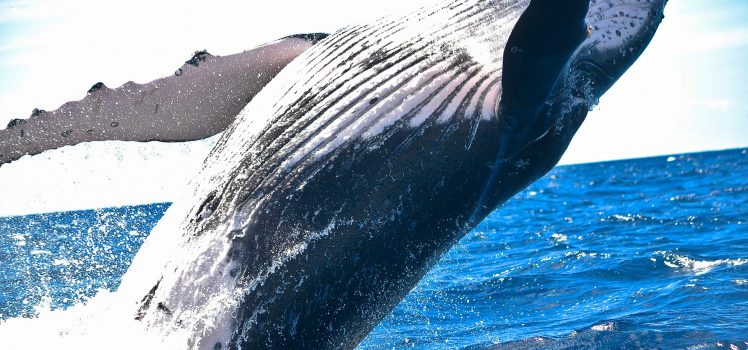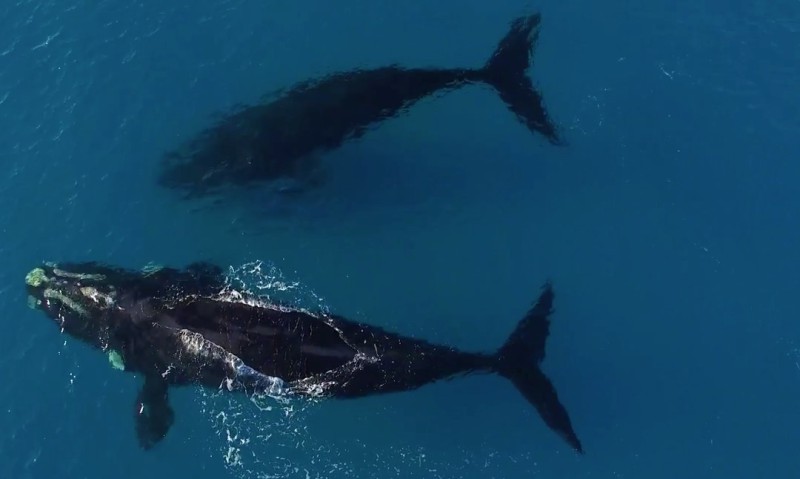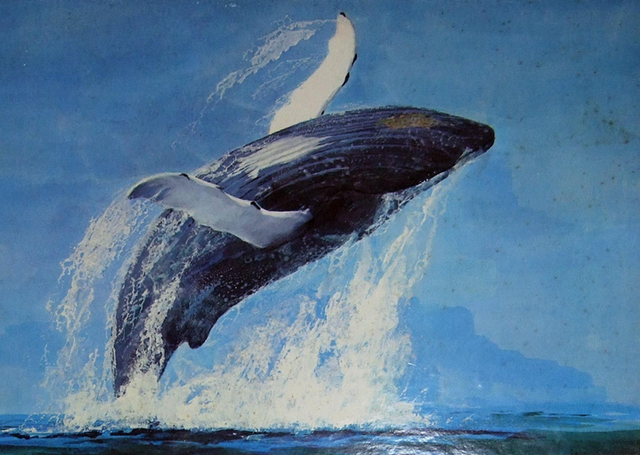In the latest edition of Marine Mammal Science a team from the University of Queensland published a paper outlining an explanation of the much observed and highly spectacular "breaching" behaviour. Thanks to @MJ_Coren for his article in Quartz. Paper: Evidence for the functions of surface-active behaviors in humpback whales (Megaptera novaeangliae) As part of their social sound repertoire, migrating humpback whales (Megaptera novaeangliae)…
Tag Archives Cetacea
Exquisite. Worth a full-screen view... https://youtu.be/g6U3VCneKfs
...... timing RT @BBCEarth: Upstaged by a whale's perfect comic timing #BigBlueLive #EarthOnLocation https://t.co/62ztLONw3E — Sanctuaries (NOAA) (@sanctuaries) August 19, 2015
The Ocean Alliance has a Snotbot Kickstarter project. This is taking non-invasive research to the next level – to study whales without harassing them or harming them. Tens of thousands of whales are killed or injured every year as a direct or indirect result of human activities. The health of ocean ecosystems is tied directly to the health of whales. If…
Thanks to FlowingData for highlighting this link by Albert Cairo to the article by David Rothenberg and Mike Deal " Whale Song Explained". The largest single pressing of any album of recorded music was not made by Michael Jackson or Mariah Carey, but by an animal the size of a city bus. Ten million copies of Songs of the Humpback Whale were inserted into…
The vaquita - a rare cetacean discovered only discovered 60 years ago - might soon be extinct http://t.co/NEYJKkmNLZ pic.twitter.com/rWYqW163ZK — GreatOceanQuarterly (@GreatOceanQrtly) December 16, 2014
.@NOAA-led rescue team frees humpback whale from life-threatening entanglement in Hawaii http://t.co/7DWQF4iMVQ pic.twitter.com/ZwtHKigCTP — Sanctuaries (NOAA) (@sanctuaries) December 16, 2014
Global Scientists Draw Attention To Threat Of Ocean Acidification. More than 150 leading marine scientists from 26 countries are calling for immediate action by policy-makers to sharply reduce carbon dioxide emissions so as to avoid widespread and severe damage to marine ecosystems from ocean acidification. [ScienceDaily: Latest Science News]
HUMPBACK whales have a type of brain cell seen only in humans, the great apes, and other cetaceans such as dolphins, US researchers report. Patrick Hof and Estel Van der Gucht, of the Mount Sinai School of Medicine in New York, studied the brains of humpback whales and discovered a spindle neuron in the cortex, in areas comparable to where…





